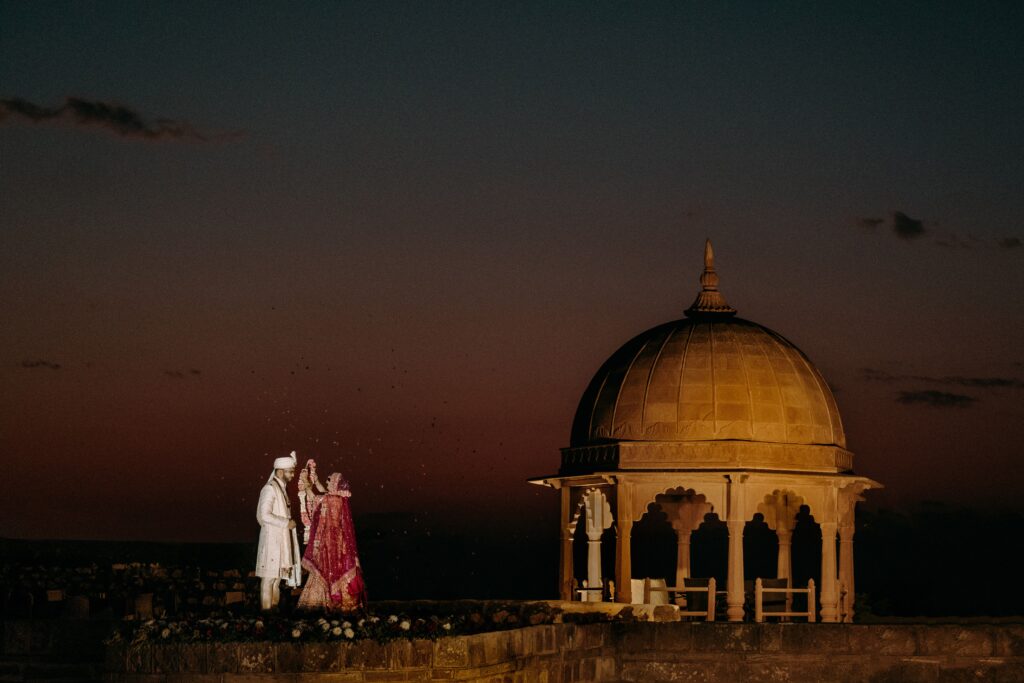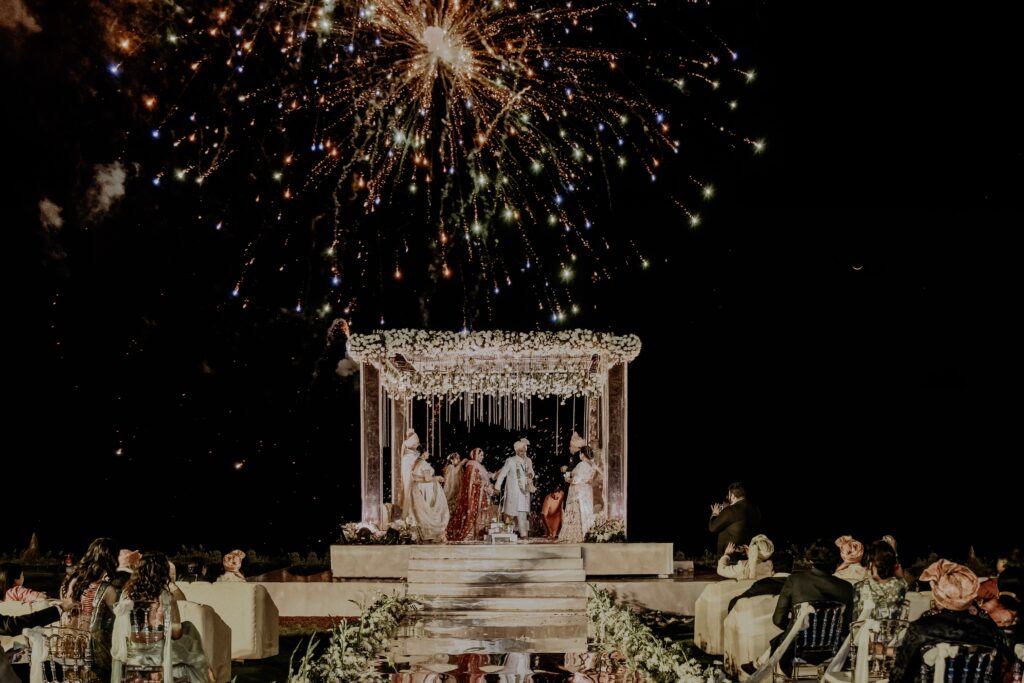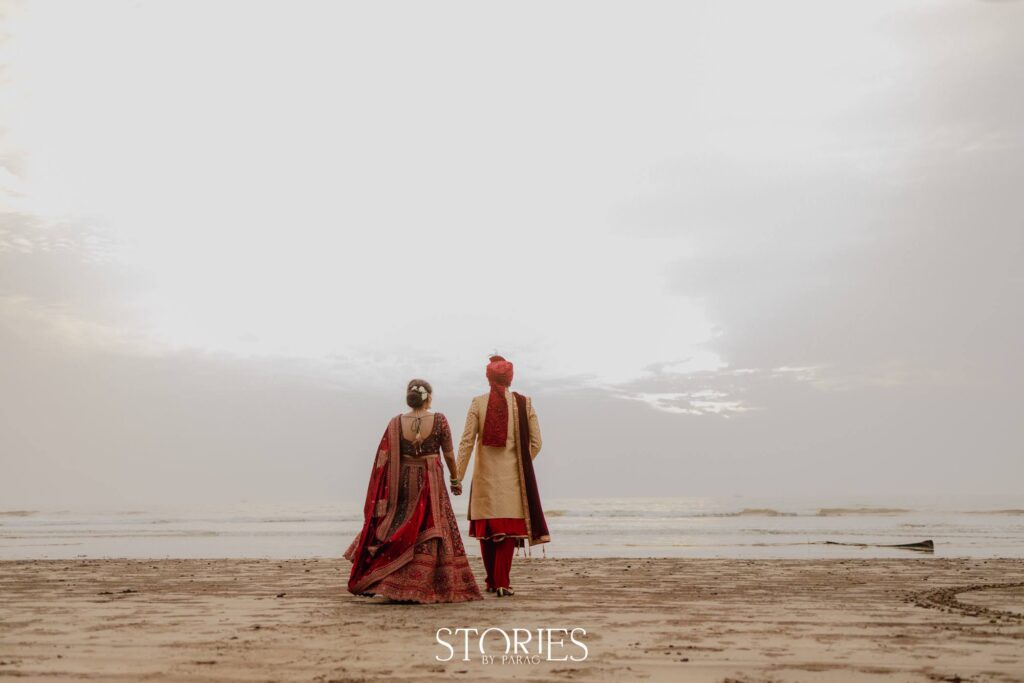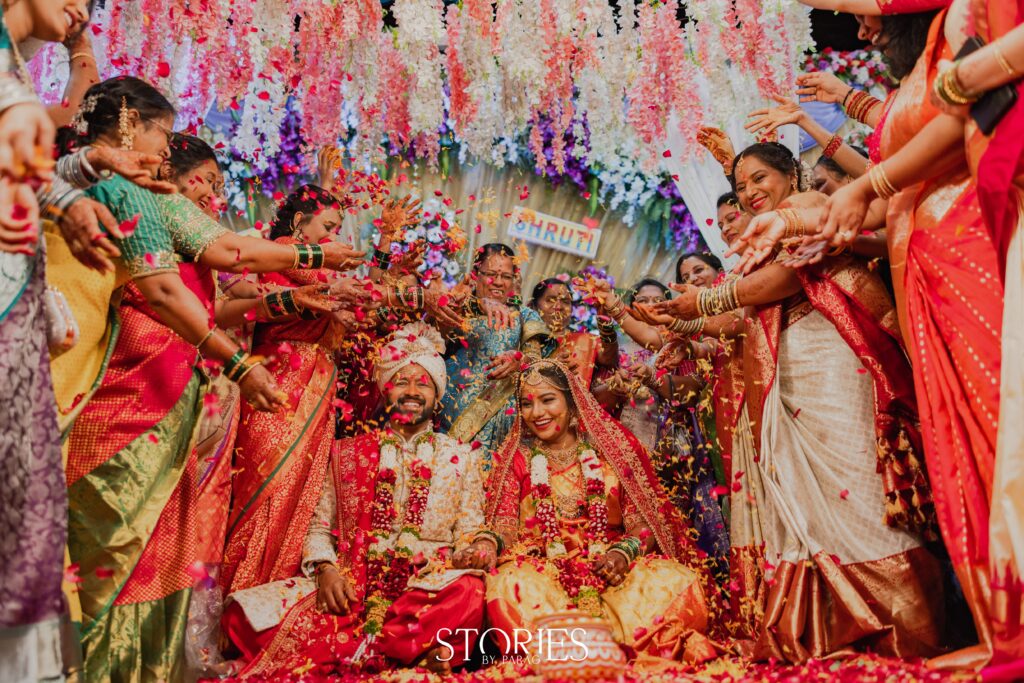
Introduction
Indian weddings are renowned for their grandeur, vibrant festivities, and intricate rituals. These celebrations, often spanning several days, are a blend of tradition, culture, and family values. But behind the opulent facade lies a staggering cost that often leaves many wondering – why are Indian weddings so expensive? Understanding the various elements contributing to the expenses can shed light on this question and help manage expectations and budgets better.
Table of Contents

Historical Significance of Indian Weddings
Indian weddings are deeply rooted in history, with traditions passed down through generations. Historically, weddings were not just a union of two individuals but a merging of families, communities, and sometimes even villages. Over time, these ceremonies have evolved but still retain their core cultural significance. This historical backdrop sets the stage for elaborate celebrations, often perceived as a reflection of one’s social and economic status.
Size of the Guest List
One of the most significant contributors to the high cost of Indian weddings is the sheer number of guests. It’s not uncommon for guest lists to exceed 500 people. Cultural expectations dictate inviting extended family, friends, neighbors, and even acquaintances. Each additional guest means more expenses on catering, seating, and gifts, exponentially increasing the total cost.
Venue Selection
The choice of venue plays a crucial role in determining the overall expense. Popular choices include luxurious hotels, palaces, and outdoor gardens, which can cost a fortune. High demand for these venues, especially during the wedding season, further drives up the prices. Securing a prime location can often be one of the most significant expenses in an Indian wedding.
Pre-Wedding Rituals and Ceremonies
Indian weddings are not confined to a single day but are a series of events, including engagement, Mehendi, Sangeet, Haldi, and the main wedding ceremony. Each of these pre-wedding rituals involves its own set of costs for decor, catering, and entertainment. These multiple functions add layers to the overall expenditure.
Wedding Attire and Jewelry
Bridal attire in Indian weddings is another major expense. Traditional outfits such as sarees, lehengas, and sherwanis are often custom-made and embellished with intricate work, costing thousands of dollars. Additionally, jewelry plays a pivotal role, with families investing in gold, diamonds, and other precious stones, further escalating the costs.
Decorations and Themes
Decorations in Indian weddings are elaborate and often follow a specific theme. From floral arrangements to lighting and stage setups, the emphasis on aesthetics leads to significant expenditure. Popular decoration trends include traditional motifs, modern chic designs, and fusion themes, each adding a unique flavor but also an additional cost.
Catering and Cuisine
Food is a central element of Indian weddings, featuring an extensive menu with a variety of dishes from different cuisines. Catering services not only need to provide quality and variety but also manage the logistics of serving large crowds. The costs associated with catering are substantial, considering the quantity and quality of food expected at these events.
Entertainment and Music
Entertainment is integral to Indian weddings, with performances by musicians, DJs, and sometimes even celebrities. The Sangeet ceremony, a musical night, is a highlight where families often hire professional choreographers and performers. These entertainment options come with a hefty price tag, adding to the overall wedding budget.
Photography and Videography
Capturing the memories of a wedding is essential, leading families to hire professional photographers and videographers. High-quality wedding photography and videography packages, including pre-wedding shoots, candid photography, and cinematic wedding films, are expensive but considered worth the investment for preserving lifelong memories.
Invitations and Stationery
Wedding invitations are not just pieces of paper but are designed to make a statement. Customized, hand-crafted invitations with intricate designs and sometimes even gifts attached are popular choices. The design, printing, and distribution of these invitations can be surprisingly costly, reflecting the importance of first impressions.
Transport and Accommodation
Arranging transport and accommodation for out-of-town guests is another significant expense. Luxurious vehicles for the bridal party, shuttle services for guests, and booking hotel rooms for extended family members are all part of the logistics, contributing to the overall financial burden.
Gifts and Return Gifts
Gifting is an essential tradition in Indian weddings. The bride and groom’s families exchange gifts, and it’s customary to give return gifts to guests as a token of appreciation. These gifts can range from simple mementos to expensive items, significantly impacting the wedding budget.
Wedding Planners and Coordinators
To manage the complexity of Indian weddings, many families hire professional wedding planners. These experts handle everything from venue selection to decor, catering, and logistics, ensuring a smooth event. While their services are invaluable, they also come with a substantial fee, adding to the overall costs.
Why Indian Weddings Are So Expensive: Conclusion
Indian weddings, with their rich traditions and cultural significance, are grand affairs that come with equally grand expenses. From the size of the guest list to the choice of venue, attire, decorations, and entertainment, every element adds to the overall cost. While the expenses can be overwhelming, understanding the factors contributing to these costs can help in better planning and management. For those looking to celebrate their union in traditional grandeur, being mindful of the budget and making informed choices can ensure a beautiful and memorable wedding without financial strain.
FAQs
1. Why are Indian weddings multi-day events? Indian weddings are multi-day events because they encompass various rituals and ceremonies, each with its own significance, celebrating different aspects of the union and involving both families in multiple stages of the process.
2. Can Indian weddings be done on a budget? Yes, Indian weddings can be done on a budget by prioritizing essential elements, limiting the guest list, choosing off-season dates, and opting for simpler decor and attire without compromising the traditional aspects.
3. What are some ways to cut costs in an Indian wedding? Some ways to cut costs include reducing the number of events, selecting a less expensive venue, opting for digital invitations, renting wedding attire, and negotiating with vendors for better rates.
4. How important is family status in determining wedding costs? Family status plays a significant role as weddings are often seen as a reflection of social standing. Families may feel pressured to host extravagant celebrations to uphold or elevate their social status, impacting the overall cost.
5. Are destination weddings cheaper or more expensive? Destination weddings can be both cheaper and more expensive, depending on the location and scale of the event. While they may reduce the guest list, the travel and accommodation expenses for the selected destination can add up, sometimes offsetting the savings.
Explore our additional blogs and utilize our wedding budget planner tool for comprehensive wedding planning assistance.
HOW TO MANAGE WEDDING TASKS: A COMPREHENSIVE GUIDE TO MANAGING EVERY DETAIL FOR YOUR PERFECT DAY
TOP 10 DREAMY INDIAN WEDDING DESTINATIONS FOR THE PERFECT ROMANTIC CELEBRATION
INDIAN WEDDING TRENDS 2024: WHAT’S IN AND WHAT’S OUT
INDIAN WEDDING SONGS: CREATING THE PERFECT PLAYLIST FOR YOUR BIG DAY
BEST WEDDING CAPTIONS FOR INSTAGRAM: CAPTURING MOMENTS WITH WORDS
INDIAN BRIDE: EMBODYING ELEGANCE AND CULTURAL HERITAGE
A STEP-BY-STEP INDIAN WEDDING BUDGET PLANNER (TOOL) FOR YOUR INDIAN CELEBRATION
UNVEILING THE BEAUTY OF THE VARMALA CEREMONY: A SYMBOLIC UNION OF HEARTS
MEHNDI CEREMONY: BRIDAL BEAUTY AND TRADITION UNVEILED
EVERYTHING YOU NEED TO KNOW ABOUT THE SANGEET CEREMONY
HALDI CEREMONY: EMBRACING HERITAGE AND HAPPINESS ON THE PATH TO FOREVER


